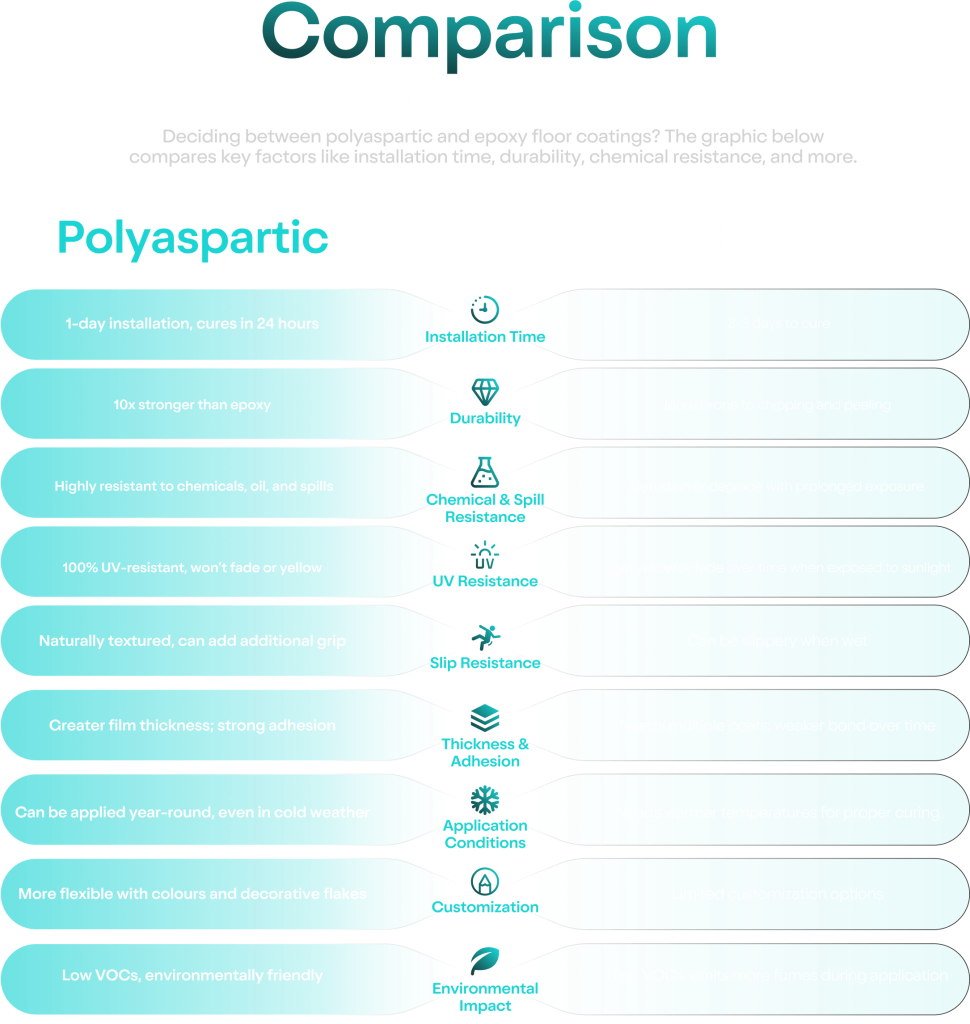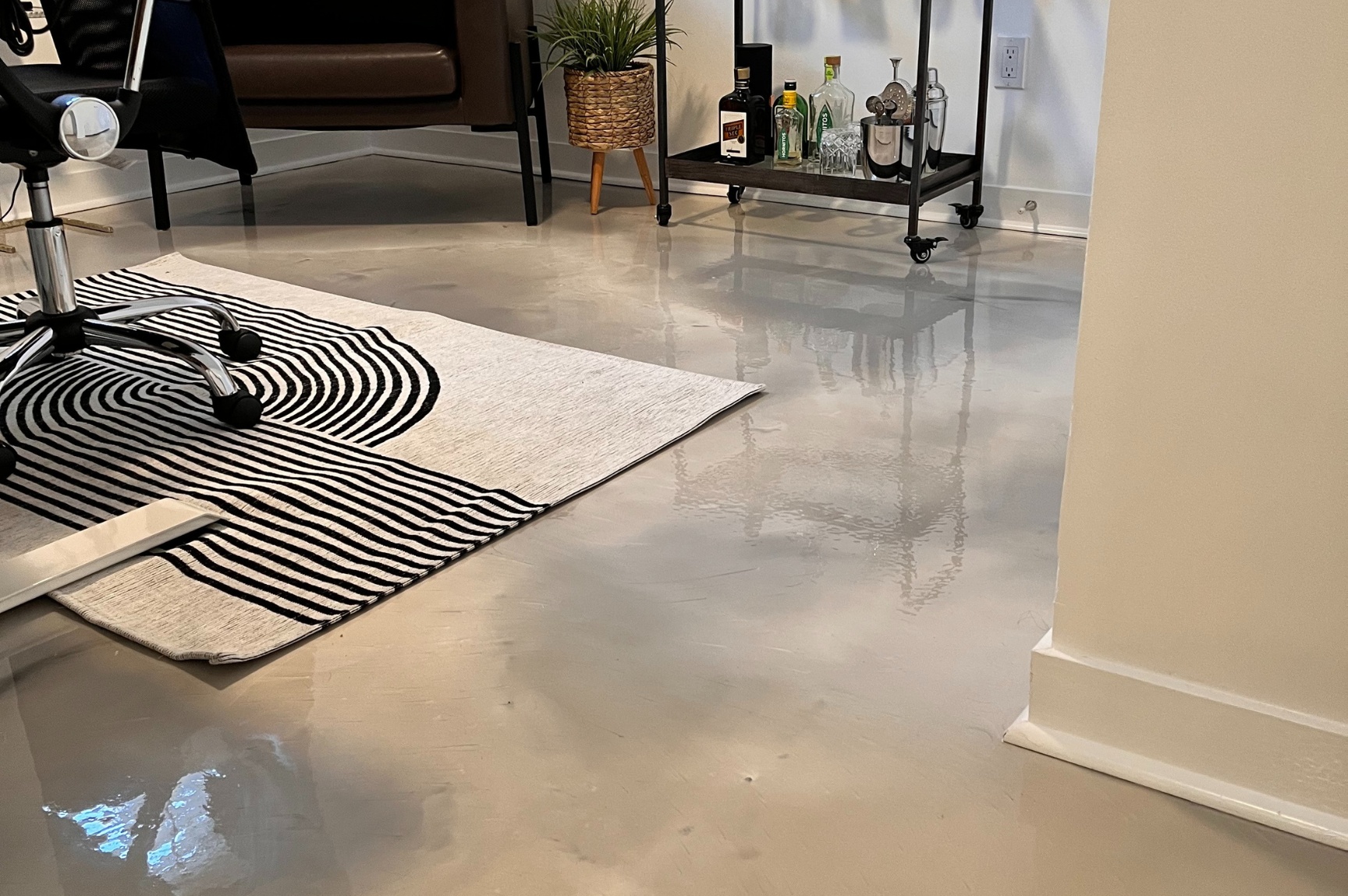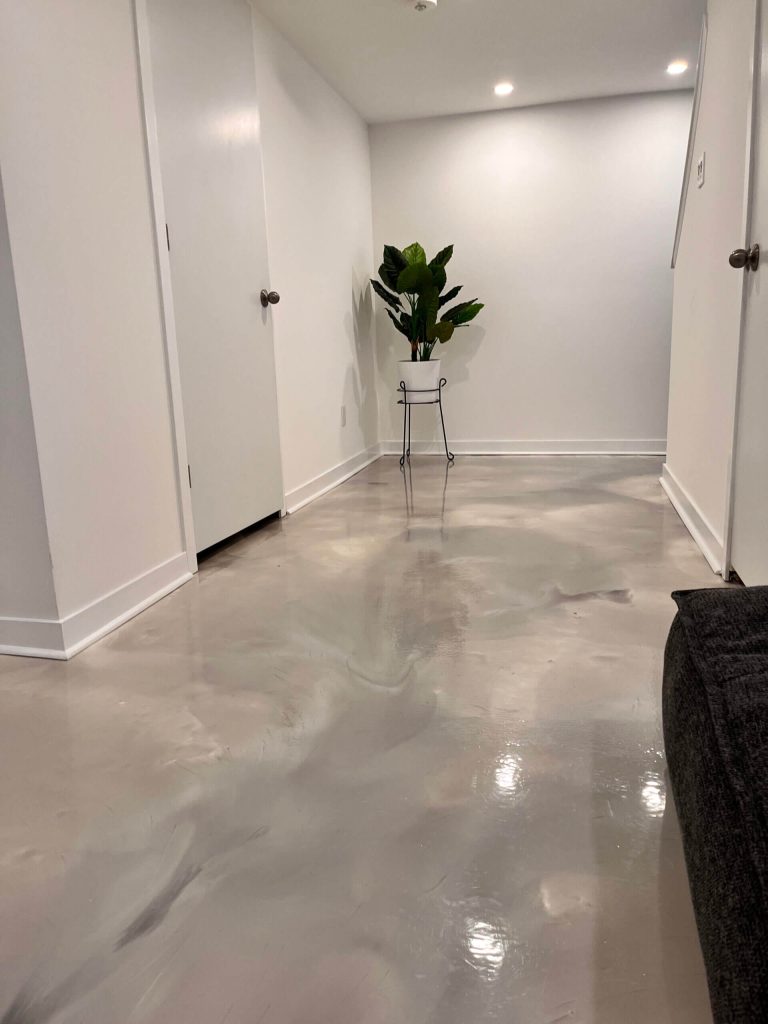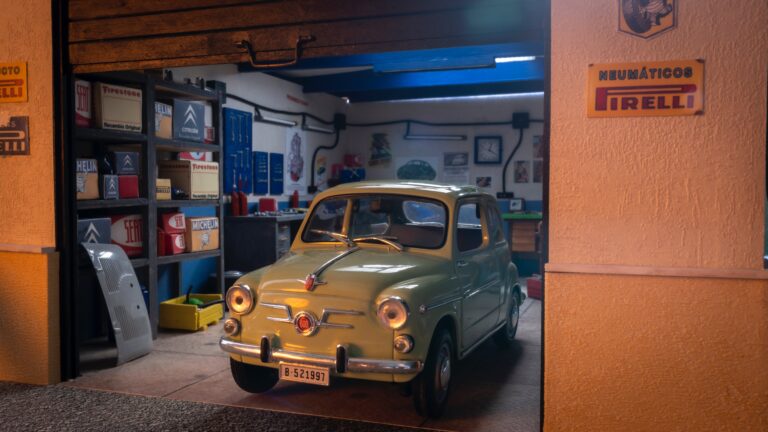If you’re deciding how to finish your basement floors, one big question tends to come up: Basement Floor Coatings: Polyaspartic vs Epoxy for Damp Spaces—which is the better option? This isn’t just about appearance. For homeowners in damp climates or in older homes, basement moisture can cause significant issues if the wrong floor coating is used.
This blog breaks down how polyaspartic and epoxy coatings perform in below-grade environments. We’ll cover moisture resistance, installation, long-term durability, and cost. By the end, you’ll have a clear understanding of which coating makes the most sense for your basement.
Why Moisture Matters in Basements
Basements frequently experience high humidity, slight water intrusion, or lingering moisture in the concrete slab, particularly in older homes. While these conditions might not cause visible flooding, they can affect how floor coatings adhere and perform.
Epoxy coatings are commonly used for garages and utility spaces. However, epoxy needs a dry surface to bond properly. If moisture is present during installation or seeps up through the slab later, it can lead to bubbling, peeling, or discoloration over time. This is a common issue in Canadian homes where seasonal moisture changes are frequent.
In contrast, polyaspartic coatings are more forgiving. They can be applied in slightly damp conditions and cure faster, reducing the window for moisture-related problems. They’re not waterproofing systems, but their tighter bond and faster cure time make them more reliable in moist environments.
Did You Know?
Polyaspartic coatings can cure in temperatures as low as -20°C, making them suitable for year-round basement work.
Durability and Resistance to Wear
Basement floors often endure a range of uses—from laundry and storage to home gyms or entertainment spaces. That means the coating needs to resist not just moisture, but also wear and tear.
Epoxy is strong, but brittle once cured. It can chip under impact, and if the foundation shifts slightly (as many older homes do), cracks can appear in the coating. In addition, UV exposure from basement windows may cause yellowing over time, especially in lighter colours.
Polyaspartic coatings are engineered for industrial-grade performance. They’re flexible enough to handle minor substrate movement without cracking. They’re also more resistant to staining, abrasion, and UV damage. According to product testing by coating manufacturers such as Coval and Sherwin-Williams, polyaspartic formulas can have up to 4 times the abrasion resistance of standard epoxy. This makes them ideal for high-use areas like basements, where dropped tools or heavy furniture are common.
Cost and Long-Term Value
Upfront pricing often leads homeowners to consider epoxy first, as it’s generally more affordable per square foot. However, this doesn’t always reflect the total investment.
Polyaspartic coatings tend to cost more upfront, but they last longer and require far less maintenance. Many homeowners report 10+ years of performance without signs of wear. They’re also easier to clean and resist stains from spills, making them ideal for basements that double as living spaces. For homeowners who use their basements as home offices, playrooms, or workout spaces, the durability pays off quickly.Epoxy coatings may require replacement or touch-ups within 5 to 7 years, especially in damp environments where the bond can weaken. If moisture intrusion or concrete shifting occurs, repairs can be extensive and costly.

Conclusion: Which is Better for Damp Basements?
So, which basement floor coating is better in damp conditions: polyaspartic or epoxy?
While epoxy has served many homeowners well, it’s more sensitive to moisture and slower to cure, which makes it less ideal for basements with humidity or residual dampness. Polyaspartic coatings offer faster curing, greater durability, and better resistance to shifting or cracking. For most basement applications—especially those prone to moisture—polyaspartic is the better long-term choice.
Quick Coat offers professional-grade solutions to help you upgrade your basement flooring with confidence. Whether you’re starting fresh or replacing an older finish, our team is ready to help.
Get Professional Results with Quick Coat
Transform your basement with a coating that’s built to last. At Quick Coat, we specialize in high-performance polyaspartic systems that protect your concrete and enhance your space. Our experienced team provides expert installation with minimal disruption, giving you a floor that looks great and performs even better.
Ready to get started? Contact us today for a no-obligation consultation, and let’s talk about what’s possible for your basement floor.



